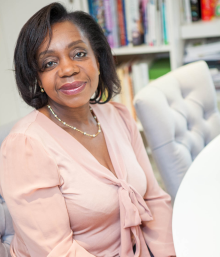 ReConnect Africa is a unique website and online magazine for the African professional in the Diaspora. Packed with
essential information about careers, business and jobs, ReConnect Africa keeps you connected to the best of Africa.
ReConnect Africa is a unique website and online magazine for the African professional in the Diaspora. Packed with
essential information about careers, business and jobs, ReConnect Africa keeps you connected to the best of Africa.


Editorial - We Need to Talk About Africa

If you live in the UK or follow social media, it would have been hard to miss the reverberations following the recent tour of three Caribbean nations by representatives of the British Royal Family. The ensuing conversations about the legacy of slavery and colonialism have, among others, raised questions about the evolving relationships between Britain and the Commonwealth and how these subjects are taught and understood in British schools today.
The African continent has long suffered from an image problem. Once publicly dubbed by the Economist magazine as ‘The Hopeless Continent’, the early 2000’s saw a renewed focus on the continent and changing perceptions about trade and investment opportunities. The ‘Africa Rising’ narrative reflected a wave of optimism about the future of the continent but despite the conferences, good news stories, and initiatives that followed, stereotypes about the continent persist and the perception of Africa in the UK still needs work.
A Vital Partner
So, I was interested to receive a copy of The APPG Africa Education Inquiry Report recently launched in the UK Parliament citing evidence that “many British children still leave school with little knowledge or mistaken impressions about Africa”.
In the Foreword penned by Chi Onwurah MP (Chair of the APPG for Africa), Lord Paul Boateng (Chair of the Inquiry Committee into Africa in UK Curricula) of Nigerian and Ghanaian heritage respectively, they make the point that Britain’s relationship with Africa is increasingly important for two reasons: “ Firstly, because there are a growing number of British citizens of African heritage living in the UK; and secondly because African countries will be increasingly vital partners for post-Brexit Britain.”
Stereotypes about the African continent persist, and the perception of Africa in the UK still needs work.
The inquiry was stimulated by a discussion on ‘Britain, Africa and the Caribbean: Teaching the Truth’, organised by the Royal African Society shortly after George Floyd’s murder in 2020. It identified two problems in particular: the present school curriculum overlooks the African perspective on and Africa’s contribution to the making of Britain; and students are too often offered an outdated and incomplete image of Africa and its links to the UK.
Although born in Ghana, I have spent most of my life outside the country. For decades, I have aimed to educate people in the UK and elsewhere about the breadth and diversity of the African continent, the contribution of African countries to the world, and life in contemporary Ghana. This would certainly have been a lot easier if the educational system in place had provided more than a nod to the immense impact Africa’s resources and people, enslaved and free, have made to the development and prosperity of the UK.
As the report states, “Improving the teaching and study of Africa and the role of the Africa diaspora in British schools should be a priority … and education is key to shaping the relationship. Africa is often discussed only in terms of poverty and slavery and its relationship with the West, and very rarely in a positive way or in its own right. This leaves intact the image of Africa as an exotic and primitive place in need of Britain’s support.”
While the report notes some examples of good practice in individual schools, these are not the norm, with the African continent frequently treated as a single homogenous ‘country’. The report highlights some quick wins and actions that stakeholders in education – be they schools, teachers, exam boards, publishers, OFSTED or government – to remedy the damage this approach has on children, not least those of African heritage and descent. Recommendations include providing resources to build teachers’ confidence and knowledge of Africa, encouraging independent publishers to commission textbooks on African history and geography for schools and engaging teachers, scholars and communities to study and prepare new curriculum programmes for the study of Africa and the diaspora in schools. It also recommends using public funds to encourage private sponsors to match funding to resource teacher fellowship programmes to develop curricula and calls for centres of excellence in the teaching of Africa in schools for the wider transfer of knowledge and support across local schools. In addition to recommending that Government and examination boards reform examination frameworks to allow innovation in the study of Africa in schools, it recommends allowing Examination boards and teachers freedom to choose novels and plays written by authors from Africa and the Diaspora (a recommendation close to my own heart) in GCSE courses, as well as including African countries in History and Geography courses beyond natural disasters, hazards, disease, and poverty, thus giving students broader knowledge of African development.
While Britain and Africa will always have a complicated relationship, like any relationship, honest communication is key. Moving beyond outdated and problematic representation of Africa in British schools to provide a more rounded, balanced, and true picture of the continent, past and present, is long overdue.
As Britain seeks a new, evolved relationship with the independent nations within the Commonwealth, it’s time for power to talk truth.

Founder & Managing Editor, ReConnect Africa
Author of Imperfect Arrangements,‘Imperfect Arrangements’ ‘From Pasta to Pigfoot’ and ‘From Pasta to Pigfoot: Second Helpings’ and the books I Want to Work in… Africa: How to Move Your Career to the World’s Most Exciting Continent’ and ‘Everyday Heroes – Learning from the Careers of Successful Black Professionals’*Adapted from an earlier article
